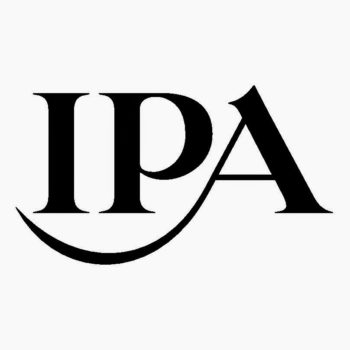Marketing Spend Has Fallen, But There’s Room for Optimism: Q1 2020 IPA Bellwether Report
by Grace Dillon on 23rd Apr 2020 in News

The IPA Bellwether Report for Q1 2020 has revealed that marketing budgets have receded at their fastest rate since the global financial crisis in 2009. The latest report, released yesterday [22 April 2020], attributed the fall to the ongoing Coronavirus pandemic, which has caused serious disruption to businesses across the globe. Despite its pessimistic findings, the report also found optimistic budget forecasts for the year 2020/2021, highlighting that UK firms are hopeful that the economy will recover. In this post, ExchangeWire speaks to a variety of industry players to get their perspectives on the Report's findings.
New consumer buying patterns may be a challenge, but brands must maintain connection

It’s hardly surprising that marketing budgets have taken a significant downturn as businesses' immediate focus is to protect cashflow. One of the biggest challenges for marketers right now is adapting to dramatically new consumer buying patterns which differ radically by category. We all know that brands which are able to still invest during a downturn have often been proven to bounce back stronger, however these are unprecedented times. That said, I believe all brands need to retain a consistent connection with consumers which is honest, authentic and meaningful. John West is no different - despite all of the challenges today, we’re still totally focused on supportive engagement with our consumers.
Jon Burton, marketing director, John West
Marketing must continue if brands are to come out strong after COVID
 Inevitably this is a story about marketing and the strength of its credibility and accountability within any business – put bluntly, is it seen as a cost or an investment by the CEO or CFO?
Inevitably this is a story about marketing and the strength of its credibility and accountability within any business – put bluntly, is it seen as a cost or an investment by the CEO or CFO?
So much evidence exists to demonstrate that maintaining or even increasing marketing spend during recessionary times can lead to improvements in market share – both over short and long-term periods. P&G have recently given clear commitment to this agenda, saying “this is not a time to go off air.”
The IPA Bellwether report appears to indicate that this stance and strategy is – regrettably – in the minority. Each business will have its own macro financial considerations to address, and there must be empathy towards decisions to cut marketing budgets where survival becomes the imperative. But, when a brand like Coca-Cola decides to pause all marketing investment, you have to wonder where the disconnect is for marketing at Board level.
The harsh reality is that if we are to realise – what the report suggests there's strong optimism we will – for recovery in late 2020/21, then more brands and businesses will need put marketing at the forefront of their investment decisions now.
Paul Evans, strategy and marketing consultant to ad tech and media businesses
The industry will come out of this crisis stronger and wiser
 While this is currently a human tragedy affecting the entire planet, it may seem odd to feel optimistic having read this report. But I do. The numbers for Q1 reflect the severity and breadth of the crisis and its effects, for sure. But the belief in an economic bounce-back out of this year and into 2021 illustrates a collective commitment to investing in growth. My hope is that we can all help kickstart the UK economy by focusing on this as we emerge from this grim period, which none of us will ever forget.
While this is currently a human tragedy affecting the entire planet, it may seem odd to feel optimistic having read this report. But I do. The numbers for Q1 reflect the severity and breadth of the crisis and its effects, for sure. But the belief in an economic bounce-back out of this year and into 2021 illustrates a collective commitment to investing in growth. My hope is that we can all help kickstart the UK economy by focusing on this as we emerge from this grim period, which none of us will ever forget.
Witnessing first-hand the innovation and invention that has marked this period of lockdown – new business models and operational set-ups being engineered almost overnight – as well as taking part in a new dawn of videoconference-based productivity underpin this collective optimism. We’ve learned we can do things differently, better. Lots of businesses, big and small, have suffered immensely, but we will get out of this catastrophe stronger and wiser, I believe.
Jem Lloyd-Williams, CEO, Mindshare UK
Now is the time to consider where marketing budget is best spent
 Understandably, this report presents a negative picture of the industry, the data was gathered at a time when events were still unfolding and we don’t expect to see the full effects of the situation until this quarter. The causes of this downturn come from unprecedented global circumstances, yet we can apply learnings from previous times of economic crisis, and know companies that maintain some marketing efforts will most likely reap the rewards and rebound quicker.
Understandably, this report presents a negative picture of the industry, the data was gathered at a time when events were still unfolding and we don’t expect to see the full effects of the situation until this quarter. The causes of this downturn come from unprecedented global circumstances, yet we can apply learnings from previous times of economic crisis, and know companies that maintain some marketing efforts will most likely reap the rewards and rebound quicker.
However, it’s important to do this in a controlled way. Now is the time to carefully consider where marketing budget is best spent, to look after employees, partners and suppliers as well as protect brand images. Luckily in the UK, we have an industry that pulls together during these times. We’ve already seen some great collaborative thinking and initiatives that support the notion of ‘advertising for good’.
Fran Cowan, VP marketing, International Advertising Association, UK
Companies must champion independent publishers and quality journalism

The current crisis means companies have direct control over money going out, but not coming in. Many have therefore paused marketing spend to focus on what will generate revenue tomorrow, thinking only of the short-term, rather than 6-months down the line. This is very much a similar situation to what the industry saw after the 2008 stock market crash, during which the entire ad market declined by 13%.
However, unlike with the financial crash, the industry today is better prepared for recovery – the IPA forecasts a +1.0% rise in ad spend following the crisis – and has a positive means by which to do so. Far from being a time to pause media spend, the industry must work to champion the independent publishers who uphold the media ecosystem and provide access to critical public service news. And part of that is a responsibility for advertisers to support quality British journalism at this time.
Michael Nevins, CMO, Smart AdServer
Increased news consumption offers an opportunity for advertisers
 The COVID-19 crisis has severely impacted many clients' businesses and, naturally, in many cases advertising has been stopped or significantly reduced. There is still a significant proportion of clients who are able and want to advertise though, and for these clients there are many opportunities, especially in digital video (in particular entertainment apps), digital audio (including podcasts) and gaming apps which have all seen consumption soar during lockdown. Importantly, consumers are also turning to trusted news sources in huge numbers, with the greatest increases seen in younger audiences. For advertisers able to take a balanced approach to brand safety around COVID-19 related content, the online news publishers are an excellent way to reach consumers with the right message. It is absolutely essential that the tone and content of the creative message is right of course, and in practice this means creating custom measurement metrics to ensure campaigns are best aligned with client’s business objectives to ensure the right outcomes from their digital media investments are delivered.
The COVID-19 crisis has severely impacted many clients' businesses and, naturally, in many cases advertising has been stopped or significantly reduced. There is still a significant proportion of clients who are able and want to advertise though, and for these clients there are many opportunities, especially in digital video (in particular entertainment apps), digital audio (including podcasts) and gaming apps which have all seen consumption soar during lockdown. Importantly, consumers are also turning to trusted news sources in huge numbers, with the greatest increases seen in younger audiences. For advertisers able to take a balanced approach to brand safety around COVID-19 related content, the online news publishers are an excellent way to reach consumers with the right message. It is absolutely essential that the tone and content of the creative message is right of course, and in practice this means creating custom measurement metrics to ensure campaigns are best aligned with client’s business objectives to ensure the right outcomes from their digital media investments are delivered.
Paul Rowlinson, Managing Director, GroupM Digital UK
Brand safety and suitability are marketers' prime concerns

The Q1 2020 IPA Bellwether Report indicates an unsurprising downturn due to marketing budget cuts sparked by COVID-19. As an industry, we have a responsibility to support marketers in every sense: with empathy, support, thought leadership, data, guidance, and real solutions to problems. It was positive to see the optimism within the IPA report regarding the UK economy, however, with many expecting a full recovery during the coming financial year. Now really is the time to pull together, work directly with industry bodies and governments to find solutions at a time where technology can be used for the greater good.
Throughout this contextually sensitive situation, brand safety and suitability remain at the forefront of marketers’ minds. Instead of a broad application of keyword blocking, at IAS we are advising a more pragmatic approach, with the consideration that not all COVID-19 content should be deemed unsuitable. Given the vital role of trusted content in keeping the public safe and informed, we are advising thoughtful consideration to how advertisers can support quality media outlets. For publishers, leveraging technology that provides necessary page-level analysis of context and sentiment can minimise media wastage and maximise yield amid increased site traffic, ensuring that ads are matched and less likely to be blocked.
Nick Morley, EMEA MD, Integral Ad Science (IAS)
Gaming offers a bright spot in bleak times
 The report provides an unsurprising outlook for the media industry, as marketing budgets shrink and brands shy away from the limelight. However, we can be optimistic for the economic recovery predicted for 2021 and, in the interim, look to the sectors experiencing an influx of new audiences as people stay indoors.
The report provides an unsurprising outlook for the media industry, as marketing budgets shrink and brands shy away from the limelight. However, we can be optimistic for the economic recovery predicted for 2021 and, in the interim, look to the sectors experiencing an influx of new audiences as people stay indoors.
Gaming is an example of a sector thriving among the chaos. This has been recognised by the UK government – who is collaborating with developers, such as Bidstack’s partners Codemasters to reinforce its ‘Stay Home Save Lives’ messaging during the COVID-19 pandemic in some of the most popular video games (for example DiRT Rally 2.0). Gaming provides a bright spot in these bleak times for brands looking to connect with this evolving audience, in an environment rich with real-world advertising opportunities.
James Draper, CEO, Bidstack
Uncertainty gives rise to creativity

From Brexit to Coronavirus, so much has changed since Q4 2019. Clearly, 2020 is going to be one of the most challenging years as marketers seek to maximise their budgets, many of which are currently restricted. With market research and event marketing budgets experiencing the largest impact in Q1, the value of efficient marketing tools and data-driven approaches to advertising will be more critical than ever. Every marketing pound is under scrutiny and expected to work harder.
“The global impact is impossible to avoid, but during times of change comes demand for increased innovation and efficiencies. While we have already seen evidence that creativity supported by data-driven insights does not have to be stifled due to reduced budgets, it is hugely encouraging to see evidence that industry sentiment for a quick recovery is strong. Understandably, the short-term outlook may provoke caution among advertisers, but looking further ahead is critical and we must all be planning for the now, the then, and the next.
Alexander Igelsböck, CEO, Adverity
Adaptability is paramount to success
 The optimism and adaptability of the industry at this unprecedented time has been impressive. While a downturn was inevitable, the strong expectations for a quick recovery after the pandemic is encouraging and testament to the spirit of the sector we work in. Business leaders are realising how adaptable their employees are in this new era of remote working and embracing the contact-free means to develop business, moving seamlessly to digital and virtual events, as an example.
The optimism and adaptability of the industry at this unprecedented time has been impressive. While a downturn was inevitable, the strong expectations for a quick recovery after the pandemic is encouraging and testament to the spirit of the sector we work in. Business leaders are realising how adaptable their employees are in this new era of remote working and embracing the contact-free means to develop business, moving seamlessly to digital and virtual events, as an example.
As the industry evolves through this uncertain time and begins to prepare for a positive future, the ability of both teams and the tools they use day-to-day to adapt to changing business needs will continue to be paramount to success. As we work to weather this storm and ride through the pandemic, the solutions available to marketers are being scrutinised more than ever, due to the need to drive efficiency and accuracy. It is those multi-purpose, reliable solutions that give businesses the foundation on which to do great work that will gain loyal customers now and most importantly support long-term results.
Charlie Johnson, VP, UK & Ireland, Digital Element
Advertisers and publishers must work together more closely

The reduction in ad spend is a natural reaction to recent events, and an unavoidable one in many industries such as travel and hospitality. Aside from budgets naturally being paused, a large part of the hesitation in Q1 2020 was down to blanket keyword blocking that avoided association with coronavirus-related media entirely, making it hard for advertisers to safely reach their target audience.
As the year goes on, advertisers and publishers need to work more closely, identifying ways to make the most of high search volumes and the consumers desire to be entertained and stay connected to the outside world. This can be achieved through targeting premium placements with confidence, with video suppliers and publishers supporting this approach. For example, sponsored editorials offering advice on how to stay fit and healthy during lockdown and contextually relevant ad placements within video content that take advantage of consumers increased online activity.
Appropriate ad channels and performance-based marketing are key for brands
 In this period of uncertainty, 43% of consumers find it reassuring to hear from brands they know and trust. This means that instead of stopping marketing activity altogether, the industry must adapt its strategies to maintain customer loyalty during the pandemic, and beyond.
In this period of uncertainty, 43% of consumers find it reassuring to hear from brands they know and trust. This means that instead of stopping marketing activity altogether, the industry must adapt its strategies to maintain customer loyalty during the pandemic, and beyond.Staying activity is the best preparation for a post-coronavirus market
 Optimism beyond the pessimism is the underlying message of the latest IPA Bellwether report. We may not have seen total marketing budgets decline this fast since the global financial crisis, but these are extraordinary times. Coronavirus has put paid to a lot of activity this quarter, but many marketers expect it to pick up over the course of the year: ad spend might be down in 2020 but most expect recovery into 2021.
Optimism beyond the pessimism is the underlying message of the latest IPA Bellwether report. We may not have seen total marketing budgets decline this fast since the global financial crisis, but these are extraordinary times. Coronavirus has put paid to a lot of activity this quarter, but many marketers expect it to pick up over the course of the year: ad spend might be down in 2020 but most expect recovery into 2021.
Commitment to customers will strengthen brands
 It’s not going to shock anyone that the short-term outlook is extremely challenging. There is, however, longer-term optimism and while we will be dealing with the fallout from COVID-19 for some time to come, consumer confidence will ultimately return and marketing budgets will start to bounce back.
It’s not going to shock anyone that the short-term outlook is extremely challenging. There is, however, longer-term optimism and while we will be dealing with the fallout from COVID-19 for some time to come, consumer confidence will ultimately return and marketing budgets will start to bounce back.
There has been lots of talk about advertising through a downturn, however, the word that we see most frequently used to describe the current situation is "unprecedented". We are dealing with a global emergency and not an economic downturn and the old playbooks no longer apply wholesale.
The brands that are setting themselves up for success are the ones that are finding a tone that resonates with the public and have remained committed to delivering for their customers. Stronger brands weather tough times better than weaker brands. Those that emerge strongest from this period will be those who demonstrated the very best of what they could be. The ones who not only stood up, but stood out.
David Fletcher, chief data officer, Wavemaker
A time to re-evaluate strategy and develop robust foundations
 The results are no surprise given the massive disruption that COVID-19 is wreaking across the economy. In the short term, many businesses are in survival mode in order to protect jobs and keep themselves afloat. For others, the internal process that would have meant digital transformation that would taken months or even years to achieve are falling away laying the foundations for dramatic organisational innovation.
The results are no surprise given the massive disruption that COVID-19 is wreaking across the economy. In the short term, many businesses are in survival mode in order to protect jobs and keep themselves afloat. For others, the internal process that would have meant digital transformation that would taken months or even years to achieve are falling away laying the foundations for dramatic organisational innovation.
The results also suggest that there is optimism that we will start to return to a semblance of normality later this year. Many businesses will be using this period of enforced pause to use deep analytics to re-evaluate large swathes of their strategy and develop more robust ad and martech foundations. Many are already turning their attention to how their business will be shaped when emerge from the pandemic.
The use of data to properly inform new strategies and business plans and to drive a host of tactical decisions across the business at pace will be absolutely critical. Today’s business decisions will be judged and scrutinised in years to come so they shouldn’t be viewed as a short-term fix, but a long-term solution.
Tom Byrne, SVP agency services, EMEA, Merkle
Brands need to put the back-office first
 In the area in which I operate it makes for difficult reading that media spend is forecasted to be down close to 10% this year, but of course it is very unsurprising. Media spend which has not been cut back is being rapidly reallocated into channels which can provide short-term gains for businesses to prop up their own financial challenges (i.e businesses need customers than can spend in the short-term!). Search, social and programmatic will all clearly feel the impact of COVID-19, but I expect will feel much less impact than TV, outdoor and print. Marketing is an extension of business, so brands need to look after the back-office first and foremost and then, and only then, if they have an opportunity to sell/fulfil product/services should they think about smart ways to deploy advertising. For those that have that opportunity, there is great leverage to be had through smart (i.e not scale) based trading.
In the area in which I operate it makes for difficult reading that media spend is forecasted to be down close to 10% this year, but of course it is very unsurprising. Media spend which has not been cut back is being rapidly reallocated into channels which can provide short-term gains for businesses to prop up their own financial challenges (i.e businesses need customers than can spend in the short-term!). Search, social and programmatic will all clearly feel the impact of COVID-19, but I expect will feel much less impact than TV, outdoor and print. Marketing is an extension of business, so brands need to look after the back-office first and foremost and then, and only then, if they have an opportunity to sell/fulfil product/services should they think about smart ways to deploy advertising. For those that have that opportunity, there is great leverage to be had through smart (i.e not scale) based trading.
Wayne Blodwell, founder & CEO, The Programmatic Advisory
SMBs will be critical to recovery

Our current view of the UK ad market is in line with the IPA Bellwether. Assuming the slightly more conservative baseline GDP forecast from the IMF and other economic indicators, we predict a 14.6% decline for the total ad market in 2020, with digital faring slightly better. We stress the high volatility of the macro environment and the limits of existing forecasting methods, but macroeconomic indicators, paired with industry data, are the best modelling ingredients we have. Continual review and re-forecasting are critical.
These forecasting scenarios will only hold up if the bulk of the ad downturn is confined to Q2, with an easing of the decline in Q3 and a rebound in Q4. Should Q3 fall in line with Q2, we may be approaching a -20% ad market scenario. Crucially, the marketing response to the pandemic to date was rooted in the lockdown and the inability of businesses to operate, paired with risk mitigation. However, rising unemployment and squeezed personal expenditure can turn the ad downturn into a crisis of consumer demand, even when the lockdown is lifted and businesses can operate again.
In particular for digital, SMBs are crucial for advertising recovery. Should government support schemes work as intended, these companies will be some of the earliest to return. Early experience in China has also shown that some sectors, like fashion, are set for a V-shaped recovery. However, many clients cannot return over night: key advertisers in large segments, such as travel, are facing existential threats. At IAB Europe we expect a phased market recovery, slightly stronger than the IPA Bellwether in 2021. Yet it will take the overall ad market about 3 years in total to recover from this downturn.
Daniel Knapp, chief economist, IAB Europe
Keener scrutiny means brand will need to advertise wisely
 Following a promising forecast for advertising and marketing budgets going into 2020, the colossal impact of COVID-19 has meant we’ve started to see the complete opposite. We know that even during challenging economic times, advertising remains crucial for both brands and consumers – according to Kantar’s COVID-19 Barometer, only 8% of consumers globally believe that companies should stop advertising at this time. Not only are people craving a sense of normalcy in their lives, but, when shown in the right place and at the right time, consumers find advertising both useful and entertaining.
Following a promising forecast for advertising and marketing budgets going into 2020, the colossal impact of COVID-19 has meant we’ve started to see the complete opposite. We know that even during challenging economic times, advertising remains crucial for both brands and consumers – according to Kantar’s COVID-19 Barometer, only 8% of consumers globally believe that companies should stop advertising at this time. Not only are people craving a sense of normalcy in their lives, but, when shown in the right place and at the right time, consumers find advertising both useful and entertaining.
As businesses tighten their belts in the face of a post COVID-19 economic downtown, advertising and marketing budgets are likely to be under intense scrutiny. This means it’s all the more important for brands to use the available budget wisely, tailoring their content appropriately to the consumer experience and measuring each step of their campaigns, to ensure valuable and engaging content is targeted at the right consumers on the right platforms. Despite budgets being reduced now, the IPA Bellwether forecasts that we will start to see an uplift again later in 2020 and into 2021, making it even more important for brands to remain present and relevant to their audiences through the difficult times, if they are to weather the storm and come out on top.
Mark Inskip, CEO UK & Ireland, Kantar (Media Division)
The world hasn't stopped - it has just gone inside
 It is not going to be news to anyone that the digital ad spend bubble was going to burst - this crisis has not discriminated; it has had an effect on every part of our society and ad spend was never going to be an exception. During this time of crisis, marketers must focus on delivering innovative creative marketing if they want to maximise their ad spend across all digital channels. Although marketing budgets have caused broad based cuts on all forms of marketing, it is important to remember that the world hasn’t stopped, it’s just gone inside, and people still need products and services during lockdown. Now is the time for brands to focus on bigger, better activation ideas to gain cut through rather than the usual segmented marketing plans. Ultimately, this is an opportunity for companies to provide consumers with genuine value, and now more than ever, marketers must push the boundaries on delivering a big idea through cutting edge and original creative formats and channels.
It is not going to be news to anyone that the digital ad spend bubble was going to burst - this crisis has not discriminated; it has had an effect on every part of our society and ad spend was never going to be an exception. During this time of crisis, marketers must focus on delivering innovative creative marketing if they want to maximise their ad spend across all digital channels. Although marketing budgets have caused broad based cuts on all forms of marketing, it is important to remember that the world hasn’t stopped, it’s just gone inside, and people still need products and services during lockdown. Now is the time for brands to focus on bigger, better activation ideas to gain cut through rather than the usual segmented marketing plans. Ultimately, this is an opportunity for companies to provide consumers with genuine value, and now more than ever, marketers must push the boundaries on delivering a big idea through cutting edge and original creative formats and channels.
Fiona Wylie, CEO, Brand Champions
We need business leaders who are commercially astute and empathetic
 COVID-19 is a great equaliser, and while everyone is experiencing this pandemic differently, the significant drop in ad spend will have a knock on effect to everyone involved in the industry. It’s a new normal, and the changes that the pandemic has brought about sees us moving toward a new way of operating with more and more new partnerships being created.
COVID-19 is a great equaliser, and while everyone is experiencing this pandemic differently, the significant drop in ad spend will have a knock on effect to everyone involved in the industry. It’s a new normal, and the changes that the pandemic has brought about sees us moving toward a new way of operating with more and more new partnerships being created.
There is an expectation that this will be short-lived, and this is supported by the Report, which predicts a quick economic recovery. It is essential that brands continue to evolve their approaches and now more than ever we need people who are totally attuned to valuing partnerships. The challenge that we are currently facing is a global drop in ad spend across all sectors and we need business leaders that are both commercially astute and empathetic. It is time to prepare for the recovery which is predicted to come at the end of the year and to come back stronger and deliver initiatives that are both sustainable and durable.
Owen Hancock, marketing director, Impact
A chance for brands to support quality journalism
 The results should come as no surprise to anyone and it's good to see advertisers feeling positive about the medium-term future and pointing to recovery in 2021.
The results should come as no surprise to anyone and it's good to see advertisers feeling positive about the medium-term future and pointing to recovery in 2021.
The whole industry has the chance to reset and that starts with brands. In the short-term, it makes sense for brands to take stock and think about how they advertise during these challenging times. Smart brands will look towards the strong body of case studies showing that going quiet in a downturn isn't the answer and will therefore continue to advertise in the short term. The smartest brands will focus on developing a comms strategy that provides a genuine value exchange for their audience. We have such a strong creative industry in the UK and I look forward to seeing some amazing work and brands start to rise to the challenge.
Moving forward, it's a chance for brands to evaluate the effectiveness of their advertising and consider what their most effective channels will look like post lock-down. I hope advertisers rethink their approach of spending on big platforms simply because it's "easy" and divert spend on sites that have proven the value of quality journalism. Expect to see increased focus in video as the most effective medium for brands to tell new stories, as well as in "outcome" based buying, as brands work hard to make every pound count.
Steven Filler, MD, Union
Investing in complementary channels can aid brands' survival

We were prepared for a drop in ad spend and -6.1% is in response to public life grinding to a standstill and advertising budgets stalling. What perhaps needs to be highlighted is how certain verticals and channels are still providing some positives in amongst the sobering news. We expect to see brands and agencies divert budgets like OOH into channels which are performing well and are complementary to their messaging and formats. We are well known as an industry that can pivot and evolve and now is the time for us all to dig deep and continue to show value in order to drive marketing ad spend back up both during and after lockdown.
Niklas Bakos, CEO, Adverty
Extraordinary times require a recalibration of targets
 This report highlights that these are the toughest overall trading times that both the buy and the sell side has experienced. These extraordinary challenges facing the advertising industry requires us to recalibrate our focus. Ambitious targets need to be replaced by “coronavirus targets” and it is more important to do what needs to be done to keep the lights on. Those who are showing strong ethics, empathy and a family-like approach to how they look after their employees and their customers will lead the way in showing how brands can use this as an opportunity to give something back to the environment, to society and ultimately, to consumers. As lockdown continues, brands need to re-adjust their budgets based on predicted revenue and what gives us strength is that there is a clear expectation that there will be a significant boost in marketing budgets later this year.
This report highlights that these are the toughest overall trading times that both the buy and the sell side has experienced. These extraordinary challenges facing the advertising industry requires us to recalibrate our focus. Ambitious targets need to be replaced by “coronavirus targets” and it is more important to do what needs to be done to keep the lights on. Those who are showing strong ethics, empathy and a family-like approach to how they look after their employees and their customers will lead the way in showing how brands can use this as an opportunity to give something back to the environment, to society and ultimately, to consumers. As lockdown continues, brands need to re-adjust their budgets based on predicted revenue and what gives us strength is that there is a clear expectation that there will be a significant boost in marketing budgets later this year.
Matthew Goldhill, CEO, Picnic
Keeping in touch with consumers will set brands up for post-COVID growth

Those that lived through prior periods of global contraction have seen drops in ad spend before. We know that markets are cyclical, and that having an ad strategy that is strategic, empathetic and thoughtful during a downturn can help brands not only weather the storm, but prepare for recovery. What followed the recession of 2009 was a decade of heightened and sustained growth that launched and grew brands. 10 years ago, brands like Tesla, Amazon, and Netflix were a fraction of the size, and some of today’s trendiest e-commerce brands like Peloton and Simply Cook didn’t even exist.
It is important to remember that even during this period of contraction, there is still an opportunity for brand messages to connect with consumers. It might mean taking a different tact in messaging, or testing new channels because consumers are spending more time indoors, but continuing a discussion with your audience, when appropriate, is important. Fitness, comedy, and cooking have surged on YouTube as we have seen a shift in consumer patterns, and consumers tell us they want to consume uplifting content, both from brands and creators. Brands have the opportunity to engage with an audience that is paying attention, and can be set up for growth when ad spend recovers toward the back end of 2020.
Mattias Spetz, MD EMEA, Channel Factory
Brands must remain vigilant against piracy
 While the report highlights the expected reduction in digital ad spend in Q1, what is interesting is that we have seen an increase in ad impressions on pirate websites since lockdown, with more than six billion ad impressions on pirate websites recorded. Since global lockdowns began, there has been a 23% increase in branded ads on high-risk pirate websites from Q4 2019 to Q1 2020. The outside world and marketing spend may have gone quiet for now, but behind all those misplaced ads, things are getting very active indeed. Brands need to ensure they are on the right side of this problem and that when they do spend, that they do so without allowing the stealth criminals of the web to become further beneficiaries of the lockdown economy.
While the report highlights the expected reduction in digital ad spend in Q1, what is interesting is that we have seen an increase in ad impressions on pirate websites since lockdown, with more than six billion ad impressions on pirate websites recorded. Since global lockdowns began, there has been a 23% increase in branded ads on high-risk pirate websites from Q4 2019 to Q1 2020. The outside world and marketing spend may have gone quiet for now, but behind all those misplaced ads, things are getting very active indeed. Brands need to ensure they are on the right side of this problem and that when they do spend, that they do so without allowing the stealth criminals of the web to become further beneficiaries of the lockdown economy.
Peter Szyszko, CEO, White Bullet
Digital channels offer salvation for marketing in lockdown
 The latest IPA Bellwether report gives us a clear insight into how the COVID-19 outbreak and current economic turbulence is impacting marketing spend. We know that taking a long-term view and advertising through a downturn helps to ensure a faster recovery. I would urge brands that can to continue to invest in marketing at this time to build their brands, maintain share of voice and grow consumer confidence.
The latest IPA Bellwether report gives us a clear insight into how the COVID-19 outbreak and current economic turbulence is impacting marketing spend. We know that taking a long-term view and advertising through a downturn helps to ensure a faster recovery. I would urge brands that can to continue to invest in marketing at this time to build their brands, maintain share of voice and grow consumer confidence.
While we face many challenges at the moment, there are also opportunities for those that are willing to adapt and pivot their strategies. With the majority of us working from home, we’re turning to digital channels to stay informed, entertained and connected. For advertisers, this provides a chance to utilise real-time insights, reach engaged audiences and deliver timely messaging that can build lasting relationships with consumers.
Jon Mew, CEO, IAB UK
Ad SpendAdvertisingBrand SafetyDigital MarketingUK








Follow ExchangeWire